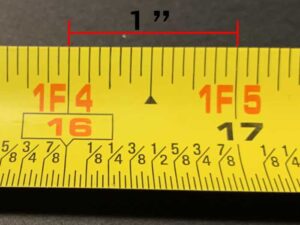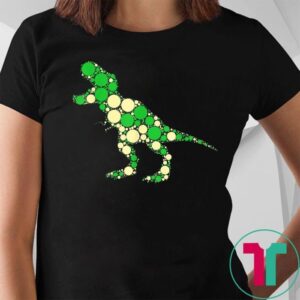Becoming pescetarian – Embark on a culinary adventure with the pescetarian diet, a plant-based lifestyle that embraces the delectable delights of seafood. Join us as we delve into the intricacies of this unique dietary approach, exploring its health implications, environmental impact, and the practicalities of transitioning to a pescetarian lifestyle.
Dive into a world of vibrant flavors and sustainable choices, where the bounty of the sea meets the wisdom of plant-based nutrition.
From understanding the nutritional benefits to navigating the complexities of dining out, this comprehensive guide empowers you with the knowledge and strategies to embrace the pescetarian path. Let us guide you on this culinary journey, where every meal becomes a symphony of flavors and every choice a step towards a healthier, more sustainable lifestyle.
Pescetarian Diet Overview
A pescetarian diet is a semi-vegetarian diet that includes fish and other seafood, but excludes meat and poultry. Pescetarians choose to eat fish and seafood because they are good sources of protein, omega-3 fatty acids, and other nutrients.A pescetarian diet is similar to a vegetarian diet in that it excludes meat and poultry.
However, pescetarians do eat fish and other seafood, which are not allowed on a vegetarian diet. A pescetarian diet is also different from a vegan diet, which excludes all animal products, including fish and seafood.There are many potential benefits to adopting a pescetarian diet.
For example, pescetarians have a lower risk of heart disease, stroke, and certain types of cancer. Pescetarians also tend to have lower blood pressure and cholesterol levels than meat-eaters.However, there are also some potential drawbacks to adopting a pescetarian diet.
For example, pescetarians may need to take supplements to ensure that they are getting enough vitamin B12, which is found only in animal products. Pescetarians may also need to be careful to avoid eating fish that are high in mercury, such as tuna and swordfish.Overall,
a pescetarian diet can be a healthy and sustainable way to eat. Pescetarians have a lower risk of certain chronic diseases and tend to have lower blood pressure and cholesterol levels than meat-eaters. However, pescetarians need to be careful to ensure that they are getting enough vitamin B12 and to avoid eating fish that are high in mercury.
Comparison to Other Diets
A pescetarian diet is similar to a vegetarian diet in that it excludes meat and poultry. However, pescetarians do eat fish and other seafood, which are not allowed on a vegetarian diet. A pescetarian diet is also different from a vegan diet, which excludes all animal products, including fish and seafood.The
following table compares a pescetarian diet to other diets:| Diet | Meat | Poultry | Fish | Seafood | Dairy | Eggs ||—|—|—|—|—|—|—|| Pescetarian | No | No | Yes | Yes | Yes | Yes || Vegetarian | No | No | No | No | Yes | Yes || Vegan | No | No | No | No | No | No |
Potential Benefits, Becoming pescetarian
There are many potential benefits to adopting a pescetarian diet. For example, pescetarians have a lower risk of heart disease, stroke, and certain types of cancer. Pescetarians also tend to have lower blood pressure and cholesterol levels than meat-eaters.The following are some of the potential benefits of a pescetarian diet:* Lower risk of heart disease
- Lower risk of stroke
- Lower risk of certain types of cancer
- Lower blood pressure
- Lower cholesterol levels
- Improved cognitive function
- Reduced risk of depression
Potential Drawbacks
However, there are also some potential drawbacks to adopting a pescetarian diet. For example, pescetarians may need to take supplements to ensure that they are getting enough vitamin B12, which is found only in animal products. Pescetarians may also need to be careful to avoid eating fish that are high in mercury, such as tuna and swordfish.The
following are some of the potential drawbacks of a pescetarian diet:* Need to take supplements to ensure adequate vitamin B12 intake
- Need to be careful to avoid eating fish that are high in mercury
- May be more expensive than a meat-based diet
- May be difficult to find pescetarian options when eating out
Health Implications of a Pescetarian Diet
A pescetarian diet, which includes fish and seafood while excluding meat and poultry, offers a unique nutritional profile that can impact overall health. This diet provides essential nutrients while potentially reducing the risk of certain chronic diseases.
Nutritional Value
Pescetarian diets are rich in:
- Omega-3 fatty acids:Found in fatty fish like salmon, tuna, and mackerel, these essential fatty acids support heart and brain health.
- Protein:Fish and seafood are excellent sources of high-quality protein, which is crucial for muscle growth and repair.
- Vitamin D:Fatty fish are among the best natural sources of vitamin D, essential for bone health.
- Iron:Shellfish, such as clams and oysters, are rich in iron, important for red blood cell production.
- Zinc:Fish and seafood are good sources of zinc, which supports immune function and wound healing.
Health Benefits
Research has linked pescetarian diets to several health benefits:
- Reduced risk of cardiovascular disease:Omega-3 fatty acids in fish have anti-inflammatory properties that may lower blood pressure, improve cholesterol levels, and reduce the risk of heart attack and stroke.
- Lower risk of certain cancers:Studies suggest that pescetarians may have a reduced risk of certain cancers, such as colorectal and prostate cancer, due to the presence of antioxidants and omega-3 fatty acids.
- Improved cognitive function:Omega-3 fatty acids are essential for brain health and may protect against cognitive decline and Alzheimer’s disease.
- Reduced risk of depression:Omega-3 fatty acids may have mood-boosting effects and have been linked to a lower risk of depression.
Potential Risks and Concerns
While a pescetarian diet can be beneficial, it’s important to consider potential risks and concerns:
- Mercury exposure:Certain types of fish, such as tuna and swordfish, may contain high levels of mercury, which can be harmful to the nervous system, especially in pregnant women and young children.
- Iodine deficiency:Fish and seafood are good sources of iodine, but pescetarians who do not consume dairy or eggs may need to supplement with iodine to prevent deficiency.
- Vitamin B12 deficiency:Vitamin B12 is not found in plant foods, so pescetarians must ensure they consume enough fish and seafood or consider supplementation.
Environmental Impact of a Pescetarian Diet
A pescetarian diet, which includes fish and seafood but excludes other meat, offers certain environmental advantages compared to other dietary choices. However, it’s crucial to consider the sustainability and ethical implications of seafood consumption.
Compared to meat production, fish farming and wild-caught fishing generally have a lower environmental impact. Meat production requires vast amounts of land, water, and feed, while fish farming can utilize marine space and convert plant-based feed into protein more efficiently.
Wild-caught fishing, when managed sustainably, can help maintain fish populations and ecosystems.
Sustainability of Fish Consumption
The sustainability of fish consumption in a pescetarian diet depends on several factors, including the type of fish consumed, fishing methods, and the overall health of fish populations. Some fish species are more sustainable than others, and choosing fish from well-managed fisheries is essential.
Additionally, reducing seafood waste and supporting sustainable fishing practices can help minimize the environmental impact.
Ethical Implications of Seafood Consumption
Seafood consumption in a pescetarian diet raises ethical concerns related to the welfare of fish and marine ecosystems. Some fishing methods, such as bottom trawling, can damage marine habitats and bycatch non-target species. Additionally, the overfishing of certain species can disrupt ecosystems and threaten their long-term survival.
Responsible seafood choices, such as opting for sustainable fishing practices and avoiding overfished species, can help mitigate these ethical concerns.
Transitioning to a Pescetarian Diet
Embarking on a pescetarian lifestyle requires a thoughtful and gradual approach. By easing into the transition, you can minimize potential challenges and set yourself up for long-term success. Here’s a step-by-step guide to help you navigate this dietary shift:
Phase 1: Reduce Meat Consumption
Start by reducing the frequency and quantity of meat you consume. Opt for plant-based meals at least twice a week, gradually increasing the frequency as you become more comfortable.
Phase 2: Incorporate Fish and Seafood
Once you’re comfortable reducing meat intake, start incorporating fish and seafood into your diet. Aim for two to three servings per week, focusing on fatty fish like salmon, tuna, and mackerel, which are rich in omega-3 fatty acids.
Phase 3: Experiment with Vegetarian Meals
To further reduce your reliance on animal products, try incorporating vegetarian meals into your routine. Explore a variety of plant-based proteins like beans, lentils, tofu, and tempeh. Experiment with different recipes and flavors to discover new favorites.
Tips for Overcoming Challenges
* Cravings:If you experience cravings for meat, try satisfying them with plant-based alternatives like seitan or tempeh.
Variety
Keep your meals interesting by experimenting with different types of fish, seafood, and plant-based foods.
Social Situations
Be prepared to explain your dietary choices to friends and family. Carry snacks or suggest restaurants that offer pescetarian options.
If you’re looking for a way to improve your health and lose weight, you may have heard of the only fish diet . This diet involves eating only fish and seafood, and it is said to have a number of benefits, including weight loss, improved heart health, and reduced inflammation.
Travel
Research pescetarian-friendly restaurants or pack your own snacks when traveling.
Sample Meal Plan
Breakfast:Oatmeal with berries and nuts Lunch:Salad with grilled salmon, quinoa, and vegetables Dinner:Vegetarian chili with cornbread Snacks:Fruit, nuts, or yogurtRemember, transitioning to a pescetarian diet is a journey. Embrace the process and make gradual changes to create a sustainable and healthy lifestyle that aligns with your values.
Recipes and Meal Ideas for Pescetarians
Pescetarianism is a healthy and sustainable diet that includes fish and seafood. It’s a great option for people who want to reduce their meat consumption but still enjoy the benefits of eating seafood. There are many delicious pescetarian recipes to choose from, so you’re sure to find something you’ll love.
Here are a few of our favorite pescetarian recipes, organized by meal type:
Breakfast
- Smoked Salmon and Avocado Toast: Smoked salmon, avocado, and cream cheese on toasted whole-wheat bread. A simple but delicious breakfast that’s packed with protein and healthy fats.
- Scrambled Eggs with Spinach and Feta: Scrambled eggs with spinach, feta cheese, and a sprinkle of lemon zest. A quick and easy breakfast that’s full of flavor.
- Yogurt Parfait with Berries and Nuts: Yogurt parfait with berries, nuts, and a drizzle of honey. A healthy and refreshing breakfast that’s perfect for a busy morning.
Lunch
- Grilled Salmon Salad: Grilled salmon salad with mixed greens, tomatoes, cucumbers, and a light vinaigrette. A healthy and satisfying lunch that’s perfect for a warm day.
- Tuna Salad Sandwich: Tuna salad sandwich on whole-wheat bread. A classic lunch option that’s always a crowd-pleaser.
- Fish Tacos: Fish tacos with grilled fish, shredded cabbage, salsa, and a squeeze of lime. A delicious and easy lunch that’s perfect for a casual gathering.
Dinner
- Pan-Seared Scallops with Lemon Butter Sauce: Pan-seared scallops with a lemon butter sauce. A sophisticated and elegant dinner that’s sure to impress your guests.
- Baked Salmon with Roasted Vegetables: Baked salmon with roasted vegetables. A healthy and flavorful dinner that’s perfect for a weeknight meal.
- Seafood Paella: Seafood paella with shrimp, mussels, clams, and saffron. A traditional Spanish dish that’s perfect for a special occasion.
Snacks
- Edamame: Edamame are a healthy and satisfying snack that’s perfect for a quick pick-me-up.
- Hummus with Pita Chips: Hummus with pita chips is a classic snack that’s always a crowd-pleaser.
- Trail Mix: Trail mix is a great snack for on-the-go. It’s packed with protein, fiber, and healthy fats.
Tips for Dining Out as a Pescetarian
Dining out as a pescetarian can be a breeze with a little preparation and knowledge. Here are some tips to help you navigate restaurant menus and make pescetarian choices when dining out.
Before heading out, research the restaurant’s menu online or call ahead to inquire about pescetarian options. This will give you a good idea of what to expect and help you plan your meal.
Pescetarian-Friendly Restaurant Chains or Cuisines
Many restaurant chains and cuisines offer a variety of pescetarian-friendly options. Here are a few to consider:
- Seafood restaurants: These restaurants specialize in seafood dishes, so you’re sure to find plenty of pescetarian options on the menu.
- Sushi restaurants: Sushi is a great pescetarian option, as it’s made with fish, rice, and vegetables.
- Mediterranean restaurants: Mediterranean cuisine often features fish and seafood dishes, as well as vegetarian options.
- Indian restaurants: Indian cuisine offers a wide variety of vegetarian and pescetarian dishes, including curries, dals, and biryanis.
Communicating Dietary Preferences to Restaurant Staff
When you arrive at the restaurant, be sure to inform your server that you are a pescetarian. This will help them make sure that your food is prepared without meat or poultry.
If you have any specific dietary restrictions, such as allergies or sensitivities, be sure to mention those as well. The restaurant staff will be happy to accommodate your needs.
If you’re looking for a healthy and sustainable way to lose weight, you may want to consider an only fish diet . This type of diet involves eating only fish and seafood, and it has been shown to be effective for weight loss and improving overall health.
Conclusive Thoughts: Becoming Pescetarian
As we conclude our exploration of the pescetarian diet, remember that it is not merely a restrictive regimen but a gateway to a world of culinary delights and mindful eating. By embracing the pescetarian path, you not only nourish your body but also make a conscious choice for the health of our planet.
Let the flavors of the sea inspire your meals, and let the principles of sustainability guide your dietary decisions. The pescetarian journey is a testament to the harmonious coexistence of taste and well-being, a culinary adventure that will enrich your life in countless ways.
FAQ Insights
Is a pescetarian diet considered vegetarian?
While pescetarians primarily consume plant-based foods, they do incorporate seafood into their diet. Therefore, a pescetarian diet is not considered vegetarian.
Can pescetarians eat eggs and dairy?
Yes, pescetarians can consume eggs and dairy products as they are not derived from animals slaughtered for their meat.
Are there any potential risks associated with a pescetarian diet?
As with any dietary change, it is essential to ensure adequate intake of essential nutrients. Consulting with a healthcare professional or registered dietitian can help you navigate the transition and address any potential concerns.





Leave a Comment